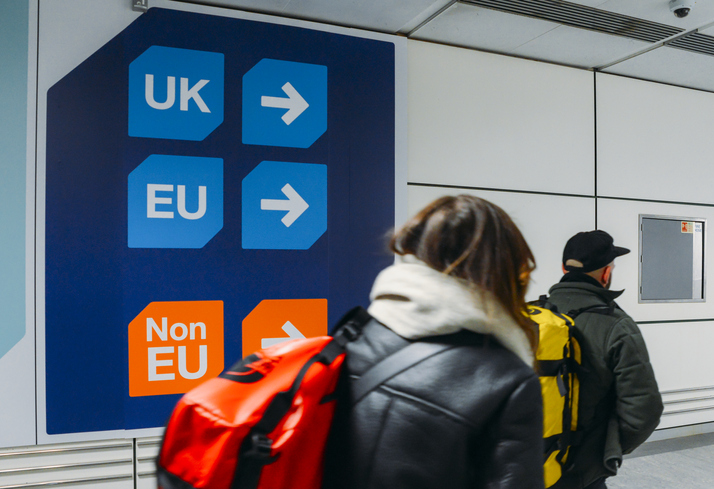Rishi Sunak has refused to recommit to the Conservative manifesto pledge made by Boris Johnson at the 2019 general election to bring the overall immigration level down.
But, speaking to Sky News, the prime minister conceded that immigration into Britain is “too high”, and said he was “committed to bringing down the levels of migration” that he inherited.
When Mr Sunak became prime minister in October, net migration stood at around half a million — but figures out next week are expected to see the numbers soar to more than 700,000.
During the 2019 election, the Conservative manifesto pledged to lower net migration from the then-level of 226,000.


Pressed further by Sky News over whether he will bring down net migration to below 500,000 by the next election, the prime minister explained: “I’m relentlessly focused on stopping the boat that’s one of my five priorities, and we’re doing absolutely everything we can to do that”.
He added: “I think illegal migration is undoubtedly the country’s priority, and you can see all the work I’m putting into that”.
His refusal to commit to Johnson’s migration target pledge came as chancellor Jeremy Hunt insisted the government would take a “pragmatic” approach to immigration, following the home secretary’s call at the National Conservatism Conference to reduce the numbers coming to the UK.
Mr Hunt told the British Chambers of Commerce that Brexit was a decision to “change our economic model towards being a high skill and a high wage economy”.
Earlier this week Ms Braverman called for Britain to be “less dependent on low-skilled foreign labour” and claimed job shortages could be filled with domestic workers.
Also commenting on migration, Labour party chair Anneliese Dodds told Sky News that Labour wants to see an overall reduction in net migration to the UK over the medium and long-term.
Asked for Labour’s position, Ms Dodds said: “Labour believes that setting a net migration target isn’t sensible, and it appears even Rishi Sunak knows that.”
But pushed on whether Labour wants to see a reduction, she said: “As I said, it’s not sensible to have that kind of target-based approach”.
She added that where there is a “short-term” need for certain skills and more people should immigrate to fill those position, explaining: “But in the medium and long-term, a reduction, because we would be training people up in our own country”.
She also denied that as part of Sir Keir Starmer’s pledged renegotiation of the Brexit deal with the EU, net migration from the continent would increase.
Labour has committed to reopening the fundamentals of the Brexit deal if Sir Keir Starmer wins the next election. The party wants to lower trade barriers with the European Union within 18 months of entering Downing Street under the party’s plans to recast relations with the bloc.
Responding to Sir Keir’s position, the prime minister said he believed Brexit was done, insisting his government had “delivered the result of the referendum”.
He said Britain had had the debate about EU withdrawal “multiple times” since the referendum, adding that he believed the trade deal Britain has with the EU is already “incredibly deep”.
Pressed on why the current trade deal had been “unsatisfactory” amid concerns from car manufacturers over a looming Brexit trade deal deadline, the prime ministers said: “We’ve had this debate multiple times”.
“We had a referendum. We’ve delivered the result of the referendum”, he added.












